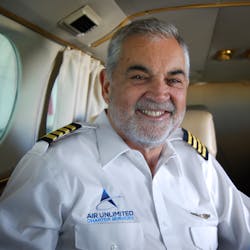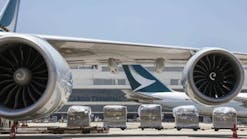Receiving commuter status isn’t an easy, overnight process. It takes planning, a high-standard of proven operations, and expert communication across teams and regulated agencies. Yet, the end result can help set your airline apart from the rest, making it certainly worth the effort. To be eligible for consideration, an airline must operate a small aircraft with less than 60 seats and maintain a scheduled routine of at least five round-trip flights that are headed to more than one destination per week. With this in mind, there are several things to know before taking off with an application and expecting to whisk away a group of excited travelers shortly thereafter.
Advanced Planning
While the commuter experience is often fun and light-hearted for travelers and aircrew alike, the application process for receiving commuter air carrier status is hard work. Key team members involved in company management, finances and operations will need to be prepared to play an active role in the airline’s application. Planning ahead can streamline this process and make it less stressful for everyone.
Before beginning the formal application process, an initial evaluation should be performed to determine if the company is, in fact, ready and qualified for consideration. During this phase, it will be important to consider metrics, such as: how many flights are being taken each week, the consistency of this travel demand, the occupancy of each trip, the number of planes in operation and the destinations in route of service. If the airline isn’t quite ready to apply for commuter status, this can still be a great, internal exercise for examining the company. Knowing where business stands can make it that much easier to improve upon and plan for a future application date.
Additionally, the application will require company projections that go through the next year of business, so planning should include both short-term and long-term goals, strategies and predicted outcomes for all areas of the company. This type of forecasting requires detailed thoughts surrounding the current and future health of the airline. With this in mind, it’s important to make sure appointed team members have the time and resources needed to work on this accreditation, without interrupting day-to-day operations. If you have a small team, it might be hard for the same person to greet guests in one breath and crunch numbers in the next, so make sure to balance tasks and give workers the flexibility needed to be successful.
Operations and Process
To receive commuter status, an airline must go through a procedure with official authorities, including the U.S. Department of Transportation (DOT), Federal Aviation Administration (FAA) and Office of the Secretary of Transportation. While many airlines are hesitant to spotlight operations under federal review, it’s important to realize that a functioning airline should be no stranger to the requirements of these agencies, which simply involve sufficient finances, maintenance upkeep, data-tracking and safety measures. Working with these agencies will provide the proper safety and economic authorizations needed to start a commuter application. It will also provide you with insight into key areas of your business.
Once these initial screenings are passed, the DOT will begin its ‘Finding of Fitness’ assessment, which consists of financial projections based on operating as a commuter. This is used to determine the airline’s ability to financially survive a full quarter of operations with no income. Most of this has to do with the fact that commuter airlines presell tickets. The DOT wants to make sure the company doesn’t presell a large number of tickets, and then declare bankruptcy, failing to refund the collected money to those passengers. Proving this financial fitness requires a great deal of financial exhibits that show projected monthly income statements and balance sheets. The application process also requires the airline to present a solidified operating proposal outlining key points, such as how it intends to use its commuter status, the markets it plans to serve with this new accreditation, the workforce needed to support this plan, and more. Look at this as an opportunity to put your business dreams on paper and an exciting exercise for realizing them.
As time consuming as this procedure can be, an application must be fully complete before its submission in order to be considered. Any missing elements could result in the application’s dismissal. This means rushing an application is never a good idea. However, if any areas of an application are under scrutiny or in need of clarifying information during its review, the company will have a short period of time to provide the details requested.
Status Benefits
Receiving commuter air carrier status can take several months, but it can also propel your company to new heights. This status comes with a range of benefits and growth opportunities, rewarding your time and effort. For example, under non-commuter status, airlines are limited to less than five round-trips. With commuter status, there is no limitation. This alone can increase business potential substantially. Having this recognition is also a competitive advantage, making commuter air carriers stand out from the rest. This is because there aren’t a large number of airlines operating with commuter status in the country, due to the lengthy process and financial requirements involved.
Nonetheless, deciding if this process and accreditation is right for your airline and crew is a matter of opinion. On one hand, the application takes hard work and time away from other initiatives and earning the status may result in new scheduling, aircraft and customer service obstacles for your team to manage. On the other hand, commuter status can help your airline uphold a prestigious certification, grow its fleet, and build a stronger, larger traveler base.
Charles “Chick” Gregg is the co-founder and captain of Air Unlimited, a private flight company in Sanford, FL. Having flown for more than forty years, he is a certified Airline Transport Pilot (ATP), a co-owner of Trans Northern Airways, LLC, and a managing member of Aviation Enterprises, LCC. Chick has his Bachelor of Science in Civil Engineering and Master of Business Administration. Additionally, he is a licensed general contractor and professional engineer in the state of Florida.



